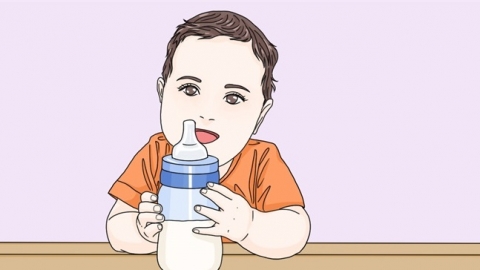How to intervene in delayed speech development in infants
Language delay in infants may be caused by factors such as a单一 language environment, genetic predisposition, hearing impairment, autism, or brain injury. It can usually be improved through enriching the language environment, professional rehabilitation training, treating the underlying condition, and comprehensive interventions. If concerns arise, timely medical evaluation is recommended. Detailed explanations are as follows:

1. 单一 Language Environment: If an infant is raised in a limited or impoverished language environment with insufficient verbal stimulation, it may lead to inadequate language input and delay language development. It is recommended to enrich the language environment, increase interaction with the infant, use diverse vocabulary and sentence structures, provide rich language models, and encourage the infant to imitate and learn.
2. Genetic Factors: Genetic factors may also influence an infant's language development to some extent. Although genetic factors cannot be directly altered, early identification, professional assessment, and targeted interventions such as enhanced language training and provision of personalized learning resources and environments can help promote language development.
3. Hearing Impairment: Hearing loss can affect an infant's ability to receive and understand language, leading to delayed language development. Associated symptoms may include delayed response to sounds and abnormal hearing test results. Appropriate hearing aids or cochlear implants should be selected based on the degree and type of hearing loss to compensate for hearing deficits, combined with language rehabilitation training to enhance the infant's language comprehension and expression abilities.
4. Autism Spectrum Disorder: Autism may restrict an infant's social interaction and communication abilities, manifesting as language delay and repetitive behaviors. Associated symptoms may include social difficulties and restricted interests. Intervention typically involves a comprehensive treatment approach, including language therapy, behavioral interventions, and social skills training, to improve the infant's language and social abilities.
5. Brain Injury: Brain injury may damage the language centers in an infant's brain, impairing normal language development. Associated symptoms may include motor dysfunction and cognitive impairment. Targeted rehabilitation therapies, such as physical therapy, occupational therapy, and speech-language therapy, are generally required based on the severity and type of brain injury to promote language recovery and overall functional improvement.
In daily life, parents should closely monitor their infant's language development, provide a rich and diverse language environment and learning resources, and encourage active participation in social activities to support both language acquisition and overall development.





